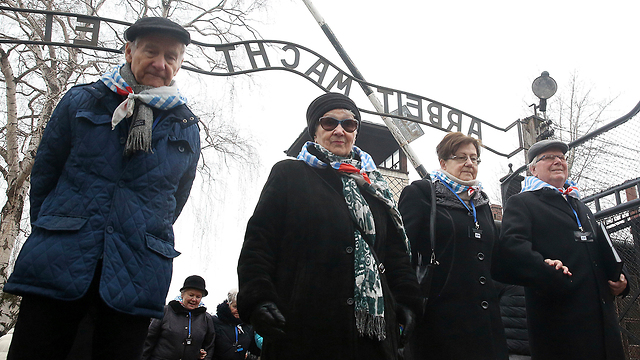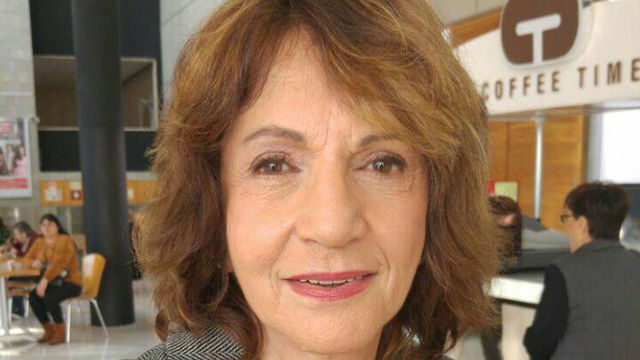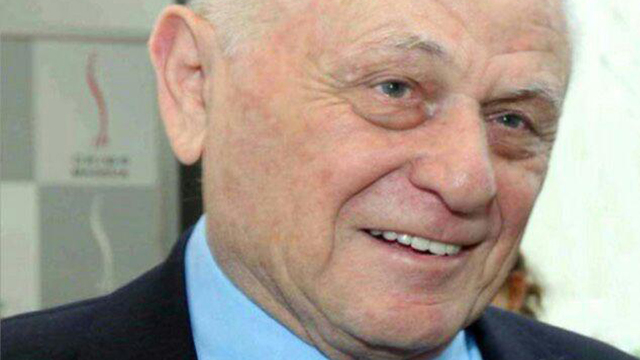Others stress that the vast majority of Poles “turned a blind eye” to the horrors that befell European Jewry on their soil, insisting that the majority were complicit with Nazi Germany's extermination program.
“During the war Poland was an occupied country, and there was a government in exile in London, and it obviously didn’t encourage the murder of Jews or collaborate with the Nazis,” said Holocaust survivor Lilly Haber, who today serves as the chairwoman of the Forum of Polish Immigrants and Members of The Presidium of the International Auschwitz Committee (IAC). “But there is culpability for the Poles themselves as individuals and I’m not talking about one or two, but a large percentage of the population. This is something the Poles should have faced long after the war, and not just gloried, honored, and praised the 6,500 Righteous Among the Nations,” she added. “What about the tens of millions who stood on the side or actively assisted in the killings? They acted to achieve the result for the Germans which they wanted—the destruction of the Jews. They assisted in the Final Solution and that can’t be denied,” Haber concluded. Moreover, Haber noted that the Poles were not mere accomplices to the Nazis’ liquidation of Jews and their atrocities, but also initiated murderous acts without prompting from Berlin. “When they’re glorifying the rescue of Jews, they have forgotten, for example, that the Kielce Pogrom was one year later,” she said in reference to the 1946 pogrom in the Polish city which claimed the lives of dozens of Jewish refugees. “A few months ago the Polish minister of culture said it was hooligans who did it. Who are these hooligans? Creatures from outer space? They were Polish citizens,” Haber stressed. “And these are Polish citizens of one kind, the Catholics, who massacred Polish citizens. And when they talk about Poles who were murdered because they helped in hiding Jews—in most cases the Gestapo knew how to get to them because of Polish denunciation.” The Poles, she added, should have learned from the Germans and taken responsibility. “Seventy-three years after the war, we were sure we wouldn't have to deal with what happened in the Holocaust other than what we learned from it, but it turns out we were wrong. It turns out that the Polish government still needs to teach history.” Similarly, another Holocaust survivor, Yehudah Maimon, opined that the law was inappropriate. “I don’t blame the Polish nation. Not all Poles are to blame, but if the Polish government seriously wants to cleanse itself, it needs to introduce legislation against those who collaborated with the Germans. There were Poles who killed Jews at ‘the festive occasion’ when the Germans killed,” he said. On the other side of the aisle are Polish Holocaust survivors such as Shraga Milstein, who was six years old when the Second World War broke out. Taken with his family a ghetto and later to the Buchenwald concentration camp and Bergen-Belsen, today he believes that it is not Israel’s place to interfere or weigh in on such issues. “What does it matter what the Poles legislate? They were also under occupation and it bothers them that no distinction is drawn between them and the German Nazis who were there,” Milstein pointed out. “We are now 73 years after the end of the war and the liberation of the camps, our relations as Jews and the State of Israel with Poland are good today as they are with Germany. That says something. We as a state need to deal with the Poles of today as we do with the Germans of today, and not to attribute the crimes of forefathers to the third and fourth generations.” For Tommy Shaham, whose family was almost entirely wiped out in the Holocaust, the Polish law is laughable. “In Poland they were collaborators and even today there’s anti-Semitism,” he insists. Shama passed through Auschwitz death camp and was liberated in Poland 73 years ago. According to him, the Poles were responsible for some of the atrocities that took place there and often demonstrated more zeal than the Germans in inflicting suffering on their Jewish victims. “The capo at Auschwitz was a Polish woman and she was more cruel than the Germans. She did more than what she needed to do,” he recalled. The aim of the Polish Law, Tommy argued, is to “erase history. But we remember it well. We have evidence and there is no court that will be able to erase the history. The map, Auschwitz is on Polish, not German, soil.”While Shaham pointed out that “there were anti-Semitic Poles just like in every other country,” he said it was also “important to remember that the Germans were the ones who did it. There were anti-Semites in Poland, but they weren’t worse than the Nazis. The Germans were the ones who at the end of the day gave the orders.
Amir Alon, Itamar Eichner, Alexandra Lukash, Nir Cohen, Yale Friedson, Telem Yahav, Israel Moskowitz and Eitan Glickman contributed to this report.
Polish death camp bill divides Holocaust survivors : http://ift.tt/2FlXi0X


No comments:
Post a Comment